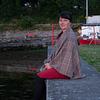Take a photo of a barcode or cover
Graphic: Child abuse, Domestic abuse, Emotional abuse, Physical abuse, Suicidal thoughts, Violence
Moderate: Racism, Self harm, Sexual assault, Religious bigotry
Graphic: Child abuse, Domestic abuse
Moderate: Domestic abuse, Suicidal thoughts
Graphic: Domestic abuse, Sexism, Suicidal thoughts, Toxic relationship, Violence
Moderate: Racism, Sexual assault, Religious bigotry
Minor: Slavery
Graphic: Adult/minor relationship, Child abuse, Domestic abuse, Drug use, Emotional abuse, Misogyny, Racism, Self harm, Sexism, Suicidal thoughts, Religious bigotry, Abandonment
Moderate: Child abuse, Domestic abuse, Mental illness, Self harm, Sexual assault, Suicidal thoughts
Graphic: Child abuse, Domestic abuse, Emotional abuse, Misogyny, Toxic relationship
Moderate: Adult/minor relationship, Alcoholism
Minor: Classism
Moderate: Adult/minor relationship, Child abuse, Domestic abuse, Emotional abuse, Gaslighting
Minor: Infertility, Infidelity, Misogyny, Self harm, Suicidal thoughts, Toxic relationship, Violence, Pregnancy, Injury/Injury detail
Graphic: Domestic abuse, Emotional abuse, Racism, Sexism, Suicidal thoughts
Graphic: Domestic abuse
Moderate: Child abuse, Violence



